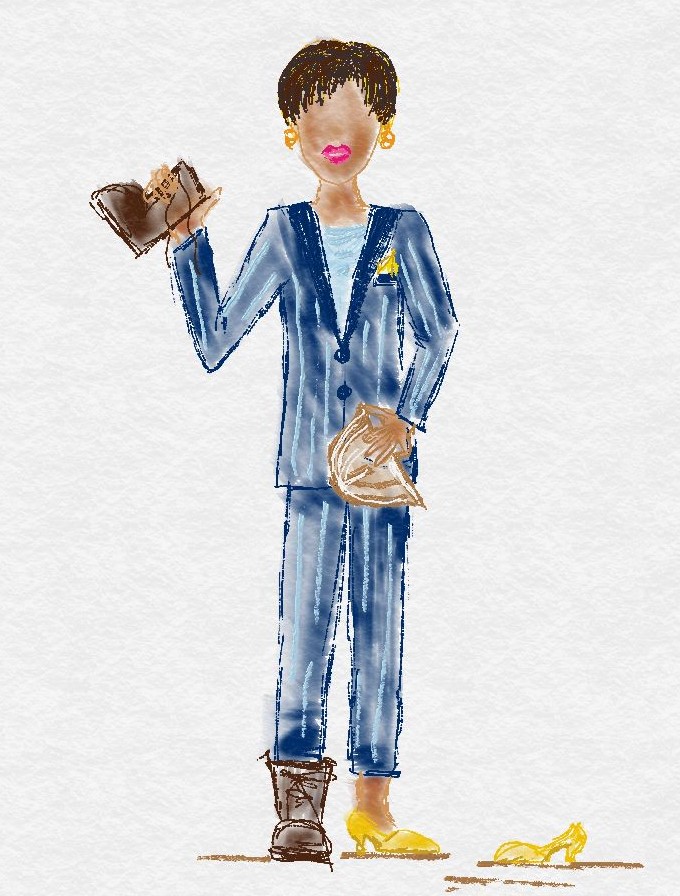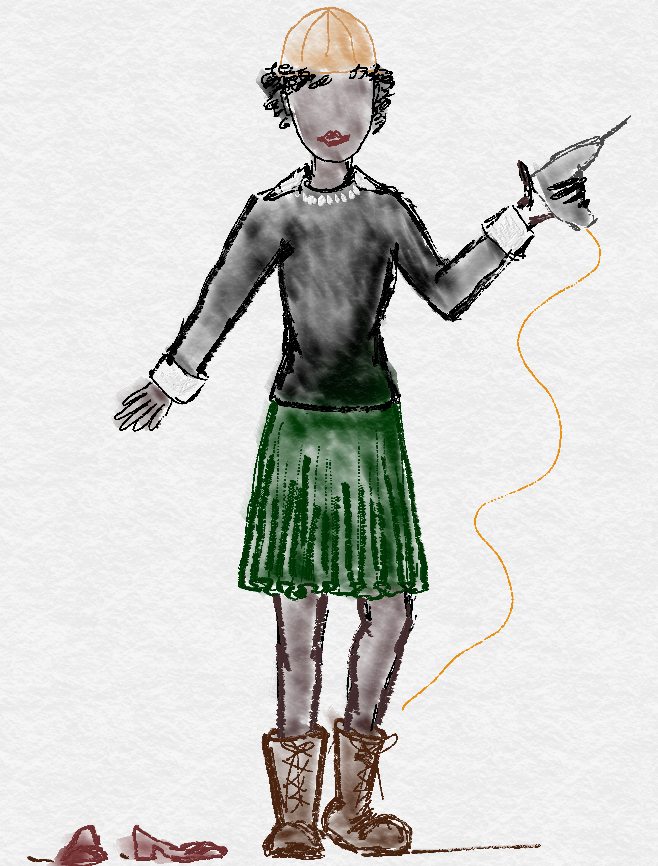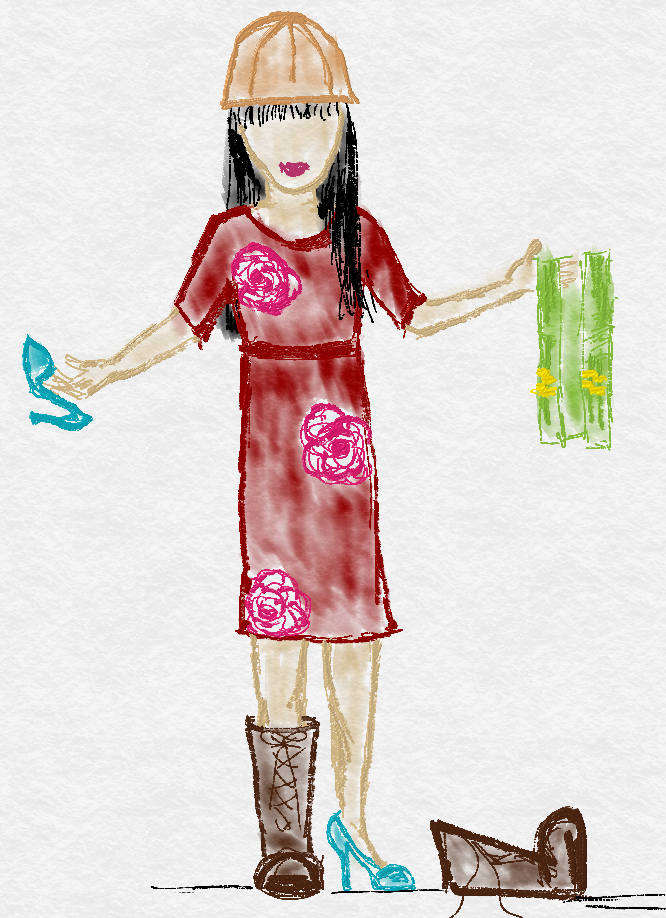Equal Pay! Equal Pay!
A Victory for All

Did you watch? Did you cheer? Did you cry every time they showed a commercial with a young girl with a hopeful expression?
I realize that not all of our Underpinnings community may have been interested in the recent victory by the United States team in the FIFA World Cup, but we all should be. In fact, the victory by the United States isn’t the only significant takeaway from this soccer tournament. (Sorry fans from the rest of the world – in my land, football involves helmets and tailgating and the use of hands). The attention paid to all the teams and the tournament in general is a victory.
Until recent years, women’s sports were only of universal interest when there was some item of appeal other than just the female athletes’ performances. Dorothy Hamill’s haircut, Florence Griffith-Joyner’s one-legged running suits, Misty May-Treanor’s uniform – all of these elements were used as additional allure to help get people to cheer for women’s sports. Today, Serena Williams still gets more press for giving Meghan Markle a baby shower than for her 23 Grand Slam singles titles. In most cases, television networks and venue owners and, let’s be honest, most ordinary citizens in the past didn’t believe that women’s sports were exciting or interesting because women weren’t considered to be elite athletes. Instead, the average bear looked at women in sports along the lines of “Isn’t that cute?” It was the same attitude by which most parents view their first graders’ pursuit of local championships. It’s cute that they’re trying, isn’t it? If you are over 30 and you think everyone you know took you seriously as an athlete, you’re sadly deluded. You and your teammates were serious, of course. Your family? Yes. Your school? Probably a lot of them did. The guy who owns the local hardware store? Insert chuckle here.
I give you this jaded, cynical perspective as someone who can attest to it from the front lines. I was on the volleyball team, the softball team, the cheerleading squad, and the tennis team in grade school, and the cross country and track teams in grade school, high school, and college. I played Little League baseball right after the Supreme Court decided that girls had to be allowed to play. I also was in a bunch of other activities, like newspaper, Pep Club, French Club, student government, ASCE, Tau Beta Pi, etc., so I could see the contrast between sports and other areas. (Yes, I “overscheduled” myself, but I had a deep, abject fear of being called lazy. I have no idea why, and it certainly was not the fault of my very supportive parents, but there you have it. My efforts often suffered from a quantity over quality issue).
This is not to say that I experienced full equity in every other activity, but I did hear the same statement made repeatedly about sports – “Okay, maybe women are equal to men mentally, but you have to admit that men are stronger and faster, so women will never be able to compete with men in sports.” This assumes that all sports depend solely on speed and strength. The foregone conclusion then was that women’s sports weren’t worth watching because we are inferior athletes. (It should be noted that strength is defined here solely as the ability to lift the heaviest weights. As is demonstrated by concrete, one definition of strength does not mean that the material is “strongest”).
Many guys I have known have treated sports almost as if they are the last bastions of men’s superiority to women. They reluctantly support our forays into “their” worlds – banking, medicine, construction – and fall back on what they think is a sure-fired argument, that being that women will never be equal to men in what they see as physical prowess. Once again, their perspective is too general and transparently desperate.
In high school, a coach for a rival cross-country team was generous with his excellent coaching advice, often giving pointers to those of us not on his team. We were a tight community and he was well-regarded, so no one objected. In addition, one of the girls on his team and I looked a lot alike, and our people routinely mistook us for each other, so I became friends with most of the girls on their team.
After one meet, I made a passing comment to this coach that I wished I could have finished the race as strongly as my doppelganger, a girl named Jenny. He patted me on the shoulder and said, “You know, she had a lot of trouble at the beginning of the year because she started looking like her mama. We worked on changing her strength training to adjust to her new body. It’s helped a lot. You ladies have to remember that you shouldn’t necessarily train the same way the boys do. You’re not less, you’re just different.” I was so taken aback that I stood there with my mouth open. Luckily, he was a good man and gave me some encouraging words before he moved on.
What Coach was saying was that the girl in question had just developed a bunch of curves and grown 3 inches. The same thing had happened to the defending State Champion the year before, and she finished 25th in State in her “new” body.
This was the first time anyone spoke to me about my physical characteristics as a female as if they were part of a different athletic machine instead of an inferior one. I had a lot of good coaches, but most of them existed within the limited framework society presented for women’s sports. We worked hard, we did what we could, but we didn’t get the same analysis and encouragement to push our limits like the guys did.
The world is a much better place for female athletes today, but many people still hold onto the same prejudices, regardless of what they say or how many daughters they have in soccer leagues. How many times have you heard a guy say, “Some of those women athletes don’t even look like women,” or “Some of those girls need to watch what they say in their interviews,” or “The women’s games are fun, but they’re not real (fill in sport here) like the men play.” These statements show that a lot of people still expect women to do what women are supposed to do – look pretty and behave. We can do whatever we want as long as we strive to achieve those things and don’t try to barge into the men’s domain of physical prowess.
This World Cup team, and many people (at least in the U.S. audience), have ignored that attitude. Commercials during the games have shown women inspiring girls to be…whatever they want. We’ve had fabulous highlight reels and packed watch parties. The festivities have not been afflicted by the condescending, patronizing air that in the past has plagued coverage of women’s sports. This is sports. Period. Somewhere Bubba is out fishing with his friends and complaining that those “ugly manly women trying to play soccer shouldn’t be on TV,” but his opinion wouldn’t be a popular one at most watering holes this week.
And the effects reach beyond the field. During this World Cup, the issue came up that the U.S. Women have performed (repeatedly) better than the U.S. men, but they are paid a fraction of what the men are paid. The revelation caused quite an uproar, leading to yet another discussion of gender equity in yet another arena. (Equal pay! Equal pay!) Even if you aren’t into sports, you owe this team a thank you for bringing the case for equity to a very visible, very popular format. Don’t rail about how “more important” professions should have been given attention before this, and people in sports don’t do “real work.” Say thank you for the shot in the arm and for putting the spotlight on pay equity to an audience of millions.
The important lesson from the success of the World Cup team as it pertains to our struggles as women goes back to the words of my rival coach. People can say that men are faster or stronger or don’t have to worry about breastfeeding their newborns while overseeing installation of a slurry cutoff wall. That just means we’re different. Not less, just different. The world is a better place when everyone recognizes this.



6 Responses to Equal Pay! Equal Pay!